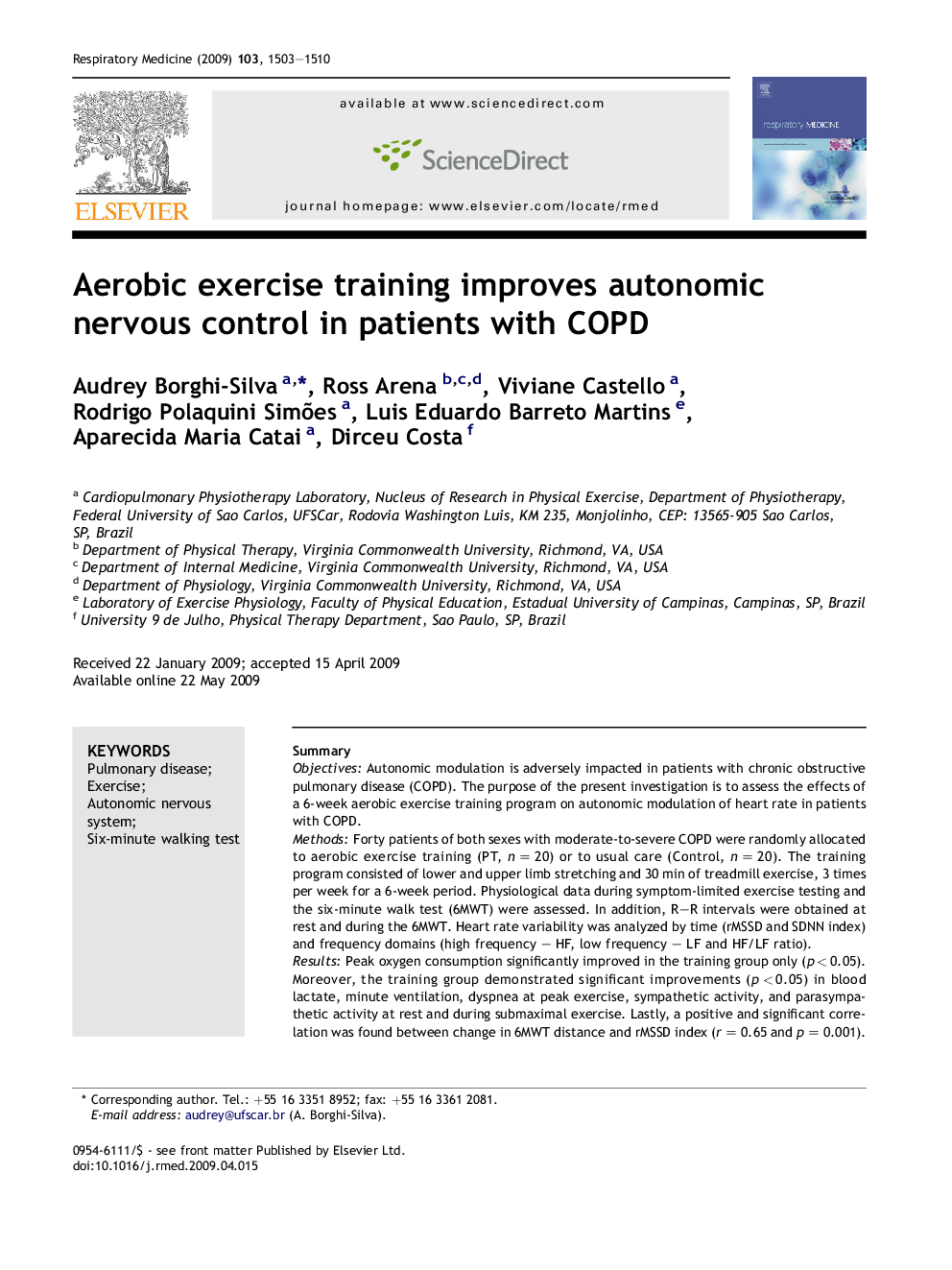| Article ID | Journal | Published Year | Pages | File Type |
|---|---|---|---|---|
| 4210773 | Respiratory Medicine | 2009 | 8 Pages |
SummaryObjectivesAutonomic modulation is adversely impacted in patients with chronic obstructive pulmonary disease (COPD). The purpose of the present investigation is to assess the effects of a 6-week aerobic exercise training program on autonomic modulation of heart rate in patients with COPD.MethodsForty patients of both sexes with moderate-to-severe COPD were randomly allocated to aerobic exercise training (PT, n = 20) or to usual care (Control, n = 20). The training program consisted of lower and upper limb stretching and 30 min of treadmill exercise, 3 times per week for a 6-week period. Physiological data during symptom-limited exercise testing and the six-minute walk test (6MWT) were assessed. In addition, R–R intervals were obtained at rest and during the 6MWT. Heart rate variability was analyzed by time (rMSSD and SDNN index) and frequency domains (high frequency – HF, low frequency – LF and HF/LF ratio).ResultsPeak oxygen consumption significantly improved in the training group only (p < 0.05). Moreover, the training group demonstrated significant improvements (p < 0.05) in blood lactate, minute ventilation, dyspnea at peak exercise, sympathetic activity, and parasympathetic activity at rest and during submaximal exercise. Lastly, a positive and significant correlation was found between change in 6MWT distance and rMSSD index (r = 0.65 and p = 0.001).ConclusionsNeural control of heart rate, in addition to other clinically valuable measures, is positively altered in moderate–severe COPD patients following 6 weeks of aerobic exercise training. The improvement in submaximal performance after exercise training was associated with parasympathetic activity.
